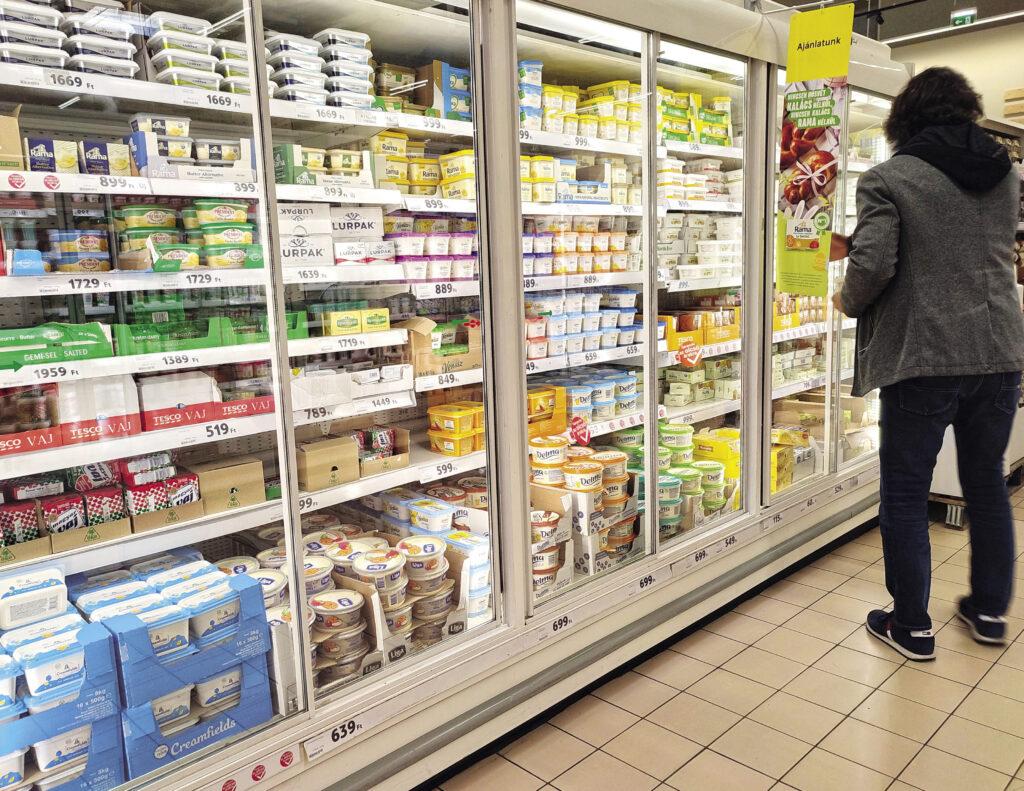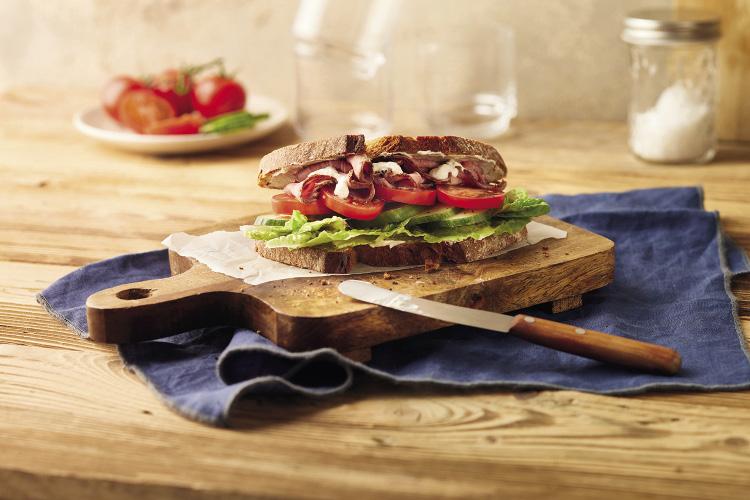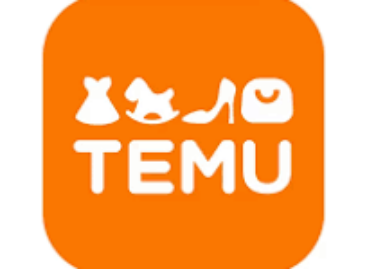Margarine’s renaissance
NIQ data reveal that Hungarian margarine sales grew by more than 40% in value last year, but the volume sales growth was only less than 2% because of the rising product prices.
This article is available for reading in Trade magazin 2023/6-7.
Zsolt Babják, head of sales at Upfield Hungary Kft.:

Zsolt Babják
head of sales
Upfield Hungary
“Upfield’s brands had a 51% share in the Hungarian market last year. Our most popular product was Rama baking margarine, from which shoppers buy more in the Easter and Christmas baking season than from butter.”
Since Ukraine is the biggest sunflower seed and sunflower oil producer in the world, supplying 50% of the global offering, the margarine industry had to cope with a prices increase due to the war.
Margarine and butter alternative
We can find low fat, heart-friendly and baking margarines and butter alternatives in the Upfield portfolio. Mr Babják explained that butter alternatives are still cheaper than butter, and thanks to being plant-based, they contain less fat and have a smaller environmental footprint. The company’s latest flagship product is the Rama butter alternative, which is 100% plant-based, free from palm oil, milk and preservatives, it is just as delicious as butter and can be used in as many ways.

As the price of margarine grew slower than that of butter, the segment’s increase in volume has been at the expense of butter
Judit Gombosi, Foltin Globe Kft.’s senior strategic buyer:

Judit Gombosi
senior strategic buyer
Foltin Globe
“In 2022 our company’s margarines performed above the average, as despite all the economic hardships volume sales increased.” This year the company is planning to launch new smaller-sized products, which shoppers can buy at lower prices. The product range will get a new look as well. If partners show interest, Foltin Globe Kft. will enter the market with margarines enriched with butter and vitamins.
Changing consumer preferences
Consumers have reacted to the high inflation and skyrocketing food prices by looking for cheaper products in shops, searching for promotions and downtiering to more affordable, in certain cases private label products. Foodnet Zrt. entered the market with Danish NATURLI’ spreads, which are made of premium ingredients from organic farming (rapeseed oil, shea butter oil, coconut oil, almond). “These spreads are 100% dairy-free, they are creamy and taste like butter, with a pleasant touch of almond. The product is easy to spread even straight out of the fridge and can also be used for baking” – informed brand manager Noémi Papp-Mile. //
Private labels become more important in the margarine category
The NIQ retail index revealed that Hungarian shoppers bought 29,000 tonnes of margarine, spending HUF 37bn on the category between December 2021 and November 2022.


Guest writer:
Luca Horváth
junior analytic insights associate
NIQ (formerly called NielsenIQ)
Value sales were up 34%, but volume sales didn’t change from the base period level – in a period when average prices rose considerably. Nearly half of value sales were realised by 401-2,500m² stores.
Although value sales of manufacturer brands grew by almost 30%, their volume sales dropped 9% and they lost 4 percentage points from their market share. On the contrary, private label margarine sales increased in both value and volume, improving the segment’s performance by 24%. As regards packaging type, margarines sold in a tub were responsible for 64% of value sales. Low-fat margarines are more and more popular: sales of these grew by 34% in volume and 82% in value. 85% of margarines sold are unsalted. //
Margarine is an essential product
According to the GfK ConsumerPanel, the more than 40% increase in the price of margarine didn’t deter shoppers from buying the category in 2022, as sales increased by 2%.


Guest writer:
Albert Szőke
senior consultant
ConsumerPanel Services
GfK Hungária
In the first 11 months of 2022 92% of households purchased margarine – one year earlier this proportion had been 90.4%.
Buying households purchased margarine 12.3 times, on average 580g per buying occasion. As a result of the 43% margarine price increase, value sales “only” developed by 25.5% in the category, which means that the proportion of cheaper products increased significantly (there was a 14% downtiering). Since butter, dairy spread, cream cheese, salty cottage cheese cream and sandwich cream also became much more expensive, margarine’s price remained relatively low in this category. //
This is how to make the perfect sandwich!
Brigitta Bakk, a dietitian with the Rama brand tells us how to make the ideal sandwich for the whole family:
“The sandwich should contain a source of quality protein such as egg, high meat and low fat cold cut, fish, cottage cheese, hummus or Rama’s 100% plant-based butter alternative. Families can also save money with home-made sandwiches, even more so if they put some of the leftovers from earlier meals in them. It is a good idea to use seasonal vegetables when making a sandwich. We can make vegetable spreads by mixing margarine with cooked and puréed vegetables of any kind. By adding fresh or dried herbs we can use less salt, as the diversity of flavours will deliver the taste experience.” //

Related news
A recuperating market in a changing consumer landscape
At the April meeting of the Trade Marketing Club (TMK),…
Read more >Conscious consumers, digital transformation: lessons learned on the FMCG market in 2024
This article is available for reading in Trade magazin 2025/6-7.…
Read more >Restructuring in the hygiene paper category
Trends in the hygiene paper market reflect changing consumer expectations,…
Read more >Related news
Temu has already targeted the European food market
The Chinese-rooted Temu is posing an increasingly serious threat to…
Read more >Irrigation water resources equivalent to one-third of Lake Balaton are available
Despite the extraordinary drought and lack of precipitation, we can…
Read more >Free irrigation water provided to farmers is a key element in the fight against drought
Free irrigation water provided to farmers is a key element…
Read more >






